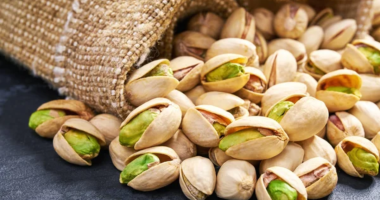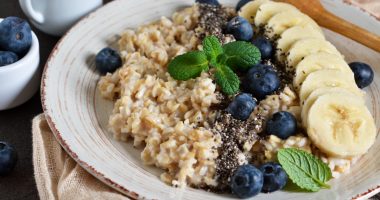When it comes to weight loss, breakfast often gets a bad reputation, especially cereal. Many people associate cereal with sugary, processed foods that sabotage their efforts to shed pounds. Yet, recent insights reveal a surprising truth: cereal, when selected thoughtfully, can actually support weight loss and improve overall health. This challenges the widespread misconception that all cereal is detrimental to slimming down. The key lies in choosing varieties that are rich in fiber and protein, with minimal added sugars, allowing cereal to become a strategic and enjoyable part of your weight management plan. With expert advice and evidence-based choices, cereal can be much more than a quick meal—it can be a valuable tool to reach your health goals.

The surprising truth about cereal and weight loss
Contrary to popular belief, cereal can be a helpful partner in your weight loss journey when chosen wisely. Lauren Harris-Pincus, MS, RDN, founder of NutritionStarringYOU.com and author of The Everything Easy Pre-Diabetes Cookbook, explains that “The right cereal can support heart health too.” She underscores the role of cereal as more than just a breakfast staple—it acts as a vessel to incorporate additional nutrient-rich foods such as low or nonfat dairy, unsweetened soymilk, fruits, nuts, and seeds. This synergistic effect enhances the meal’s overall nutritional value. Moreover, cereal consumption often correlates with diets that are richer in essential vitamins and minerals and lower in unhealthy fats.
Why cereal can support your weight loss goals
Many people avoid cereal because of its association with sugars and processed grains that can contribute to weight gain. However, scientific studies reveal a different narrative when cereal selections emphasize fiber and protein content. Fiber promotes a feeling of fullness, which can reduce overeating during other meals. Protein aids in muscle preservation and supports a higher metabolic rate during calorie restriction. Also, cereals that are fortified with vitamins and minerals help fill nutritional gaps, which might otherwise lead to cravings.
For example, a report from the Journal of Nutrition indicates that adults who regularly consume whole grain cereals have a lower body mass index (BMI) compared to those who don’t. This association likely stems from improvements in satiety and overall diet quality. As Harris-Pincus notes, cereals supporting weight loss fit into a lifestyle that values balanced meals rather than quick fixes or fad diets.
What to look for in cereal that supports weight loss
Choosing the right cereal requires attention to specific nutritional factors. Select options that provide a balanced mix of fiber, protein, low added sugars, and whole grains. Fiber content of at least 3 grams per serving is ideal to encourage fullness and better digestive health. Protein between 5 to 8 grams per serving can further stabilize blood sugar and delay hunger pangs. Moreover, cereals with minimal added sugars—preferably less than 6 grams per serving—are less likely to cause insulin spikes that promote fat storage.
Look for cereals made from whole grains like oats, barley, or wheat bran, which contain antioxidants and nutrients beneficial for metabolism. Avoid cereals with artificial sweeteners or excessive additives, as these may compromise overall health benefits. Labels that clearly state “100% whole grain” or “high fiber” can guide your choice. These characteristics align with dietary guidelines promoted by nutrition experts worldwide.
The 5 best cereals for weight loss recommended by experts
Nutrition professionals have highlighted several cereals that effectively aid weight management without sacrificing taste or convenience. Consider adding these to your pantry if you’re serious about losing weight while enjoying your meals:
Kellogg’s All-Bran Buds: Packed with 10 grams of fiber per serving, it enhances satiety and digestive health, making it a top choice for weight-conscious eaters.
Catalina Crunch: A low-carb, high-protein cereal using plant-based ingredients that appeal to those on ketogenic or low-glycemic diets.
Three Wishes Unsweetened: This cereal delivers a good balance of protein and fiber with zero added sugar, crafted from chickpeas and other legumes.
Fiber One Original: Affordable and accessible, with 14 grams of fiber per serving, it helps regulate appetite and supports healthy digestion.
Kellogg’s Complete Bran: Offering a blend of whole grains, fiber, and protein, this option sustains energy levels without excess calories.
Each of these cereals embodies the nutritional criteria essential to support weight loss, from controlling hunger to maintaining energy and nutritional intake.
The bottom line on cereal for weight loss
Incorporating the right cereal into your diet—as part of a balanced and mindful eating plan—can contribute meaningfully to weight loss and overall health. It’s not just about avoiding weight gain; the best cereals provide crucial nutrients that encourage heart health, digestive function, and metabolic stability. Harris-Pincus reminds us that cereal’s true strength lies in its capacity to act as a foundation for nutrient-dense additions, turning a simple meal into an empowering experience.
Choosing the right cereal means paying close attention to ingredient lists and nutrition facts rather than succumbing to marketing hype. When paired with wholesome additions like fresh fruits, nuts, and lean protein sources, cereal meals can become both satisfying and weight-friendly.
By making informed choices and avoiding overly processed or sugary options, cereal eaters can enjoy a convenient, enjoyable, and effective tool in managing their weight. Whether you prefer classic bran flakes or innovative plant-based blends, integrating these recommended choices practice smart nutrition and supports long-term health goals.
Also Read | How Botox and Therapy Help with Tight Pelvic Floor Pain










